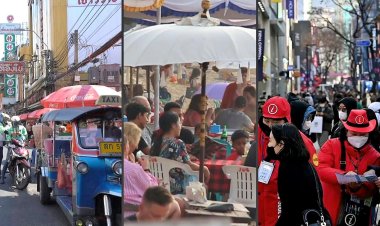Milei Set to Veto Pension Reform Amid Senate Clash

Argentina’s President Javier Milei is set to veto a pension reform passed by the Senate in a move that is likely to widen the rift between the libertarian leader and the opposition-controlled Congress.
The Senate defied Milei to push through an increase to pension spending in line with the country’s triple-digit inflation, dealing a blow to his tough austerity programme.
The bill, which swept through the lower house in June, was passed by a 61-8 vote in the Senate. All but one of the lawmakers who voted against the measure were from Milei’s party, a sign that the president’s allies had failed to negotiate with centrist parties.
Lawmakers could override his veto by passing the law with a two-thirds majority again.
“If the fiscal degenerates that are in the Argentine Congress of the Nation want to break my economic plan, I will veto the pension reform. Granted, yesterday, the fiscal degenerates voted nonsensically in a large majority that implies 62% of the GDP is debt. This is – they approved a measure that costs Argentines 370 billion dollars to ruin the life of our children, our grandchildren and our future generations,” Milei said.
Because Milei’s party controls less than 15 percent of Congress – and just seven of the Senate’s 72 seats – he has largely relied on sweeping executive decrees to slash public spending and deregulate the economy.
Last week, Congress struck down a presidential decree that would have multiplied the intelligence budget, arguing those funds could be used for more urgent social needs.
After six months in office, Milei managed to secure his first legislative victory in June, when his economic reform bill narrowly passed the Senate as thousands of protesters clashed with police.
But the pension law, which sets more than an 8 percent increase in retirement benefits this year, threatened to revive investors’ fears about the ability of the self-described “anarcho-capitalist” to implement his radical agenda.















